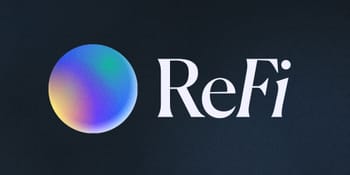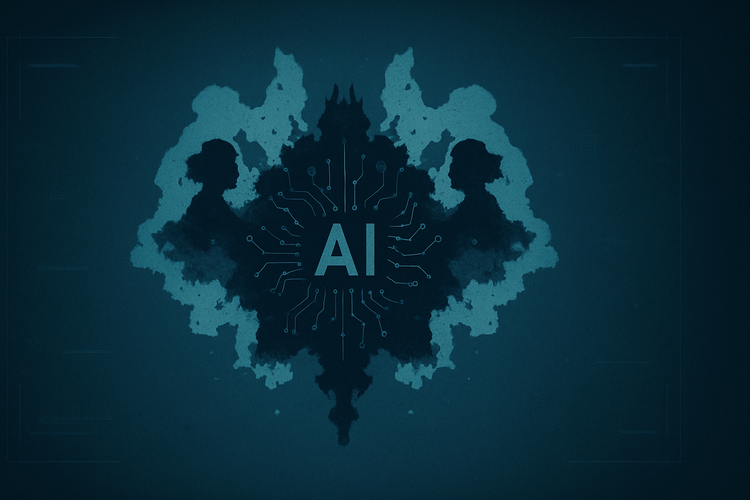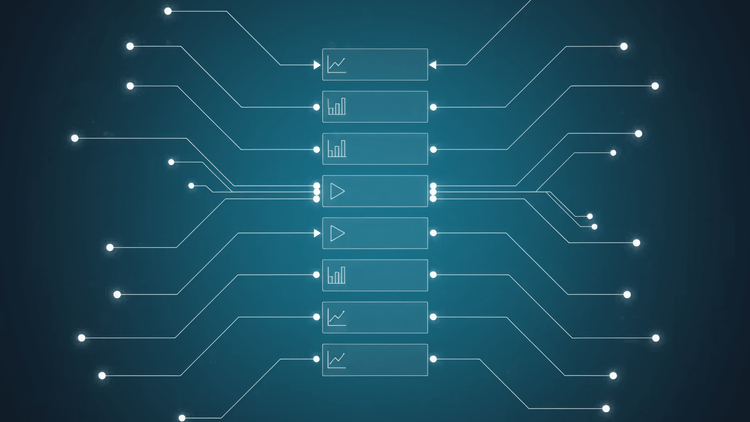Srikanth Talapadi (Sri) would read to his son at their home in India, where a neighbour’s daughter frequently visited, equally curious to listen to his stories and learn how to speak English. She began expressing herself in English, but then her family had to move away. Sri later heard that she had to be taken out of school as there were no schools in her new area. Sri had realised her potential and saw her possibility of a bright future being stripped away because she did not have the chance to read and write anymore in her new environment. This sparked a resolution within Sri to try and create something that would aid the children in India with their education journeys.
Sri has a background in software engineering and has spent the past seven years focusing his efforts on contributing to the improved education of children in his country. He’s been running a software company for the past 15 years, and after this observation within his own home, he decided to take his experience and turn it into something that would have a long-term impact.
Education is a fundamental right of children everywhere. - Sri
That is where the answer was for Sri: a solution where children aren’t dependent on a school, location, or timetable. In March 2015, he began Chimple – an open-source software application through which children can learn how to read, write, and do basic mathematics on their own, in various languages. This adaptive learning platform gives children the freedom and opportunity to grow and educate themselves, no matter their circumstances.
Chimple participated in the prestigious Global Learning XPRIZE, sponsored by Elon Musk and was selected as one of the top five finalists, from a field of 200 participants, with an award of $1 million for its open-source software. UNESCO piloted the software in Tanzania for a little more than a year, where around 500 children were given tablets loaded with the Chimple software, to collect evidence for the effectiveness of this technology. Over 15 months, the children learnt how to read and write 50% more effectively than a child who did not use the software, with great positive impacts reported.
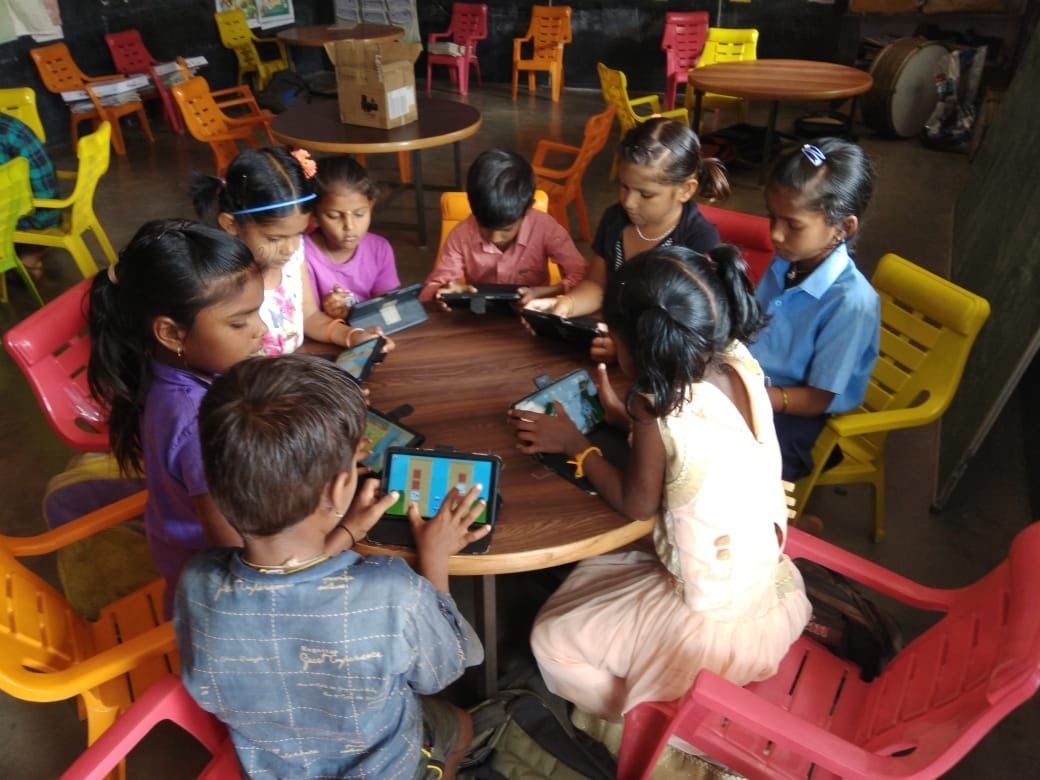
Creating equality in education
Education is on of the most powerful vehicles for sustainable development. The 2030 SDG Goal 4 is to “ensure inclusive and equitable quality education and promote lifelong learning opportunities for all.”
There is a chasm between children who know how to read and write, and those who do not. Typically, government schools in India do not provide good educational facilities. The children generally fall behind, in the end being two to three grade levels below where they should be.
Challenges that Chimple faces
The biggest problem that Sri and his team faced when they deployed their software in various places across India was access to funding. Their program is incredibly innovative, but it takes time to convince funders that if they help educate a child today, this is an investment that will pay off years later.
Convincing teachers to adopt this software into their teachings can be a challenge too. Generally, they are very familiar with teaching the whole class and looking at that class as one set of students. Typically, they teach to the middle of the class, meaning that there could be students who are either at an advanced level who get bored and don't get the opportunity to advance to their full potential, or there are students left behind for the simple reason that they cannot keep up with the pace of learning. The teacher is one person, and classes are typically large, so in the traditional teaching model it is not really feasible to personalise education to the needs of each child.
With a tablet, each individual student can learn at their own pace, at their own time. Adaptive learning using educational technologies is a game-changer for scaling quality education for all
But as Sri has seen with the teachers who have embraced their software, they begin warming up to the children's new learning process, overcoming their initial resistance.
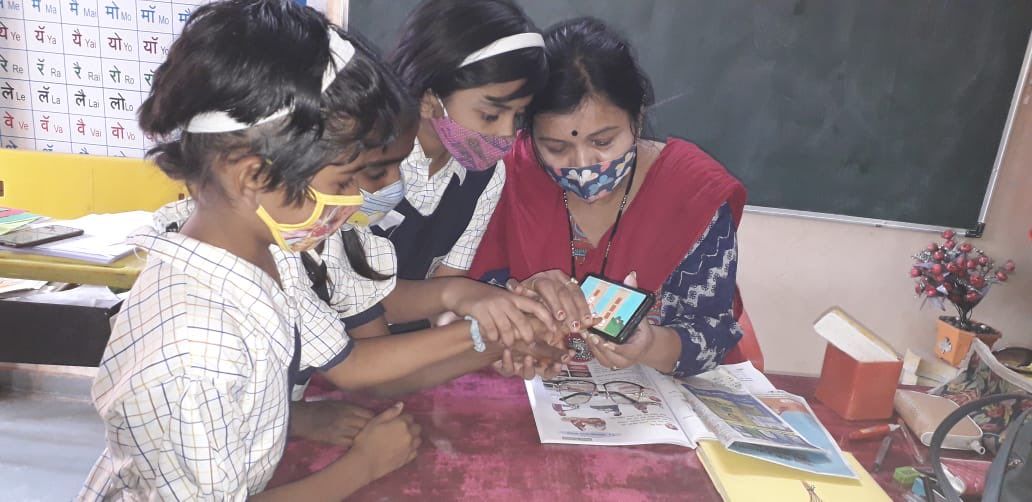
Building an education economy on the ixo Internet of Impact
Chimple has been working together with the ixo Foundation and UBS (a global financial institution) through a multi-year program of technology R&D to demonstrate how the Web3 Internet of Impact can be used to finance and scale educational technologies, which includes using the ixo Alphabond ReFi innovation to implement Development Impact Bonds, with risk-adjusted bonding curves and impact verification based on on the ixo Protocol.
Last August, children from 500 households in India where the first kids in history to begin interacting with the Web3 Internet of Impact! Children were provided with tablet devices, loaded with the Chimple software, to take home and begin theit self-learning journey during the Covid pandemic lockdowns. When schools re-open again, these children continue with a hybrid model of learning, brining their tablets to school for supervised learning sessions.
The capital for financing the purchase of tablet hardware devices and to pay the meagre operating costs of the project, is provided through the ixo Alphabond mechanism. This provides a continuous investment mechanism that dynamically reprices investments into the bond that are used for operating capital. Alphabonds implement a novel Risk-adjusted Bonding Curve crypto-economic mechanism that has been purpose-designed for Regenerative Finance applications, through a rigorous engineering research collaboration between ixo and the Token Engineering gurus at Blockscience.
As children intract with their tablet devices and progress through levels of the Chimple adaptive learning application, this generates IoT data that gets cryptographically signed on the devices and fed into the ixo blockchain.
Private data gets stored securely in ixo Cellnode decentralised databases.
Learning progress claims that stream in every month are used by an Alpha Prediction Oracle to predict the likelihood of the project succeeding to deliver its promised outcomes, which will trigger an Outcome Payment back to the investors. If Alpha increases towards 1.0 (100% likelihood of success), the price of the bond share tokens increases. If the learning progress claims show a decreasing likelihood of success, the price of the bond share token decreases. This provides a strong price signal of that reflects the performance of the development project, and creates the incentive to course-correct. Alphabonds can potentially increase the efficiency of capital allocation, enable massive scaling of capital deployment for social and ecological regeneration – in a way that reduces risks to investors, and decentralise development finance.
Dr Shaun Conway from ixo, who is the inventor of Risk-adjusted Bonding Curves, describes the Alphabond mechanism as a Cyber-Physical feedback loop that connects Verified Earth State to Validated Chain State, which he believes is what fundamentally differentiates ReFi from DeFi (as described in the ixo Internet of Impact White Paper).
The prospects for growing a Tokenised Education Economy in India
The economy of India, as in many developing countries, is divided between the 'haves' and the 'have-nots'. This is a divider that will continue to rule the lives and future prospects of hundreds of millions of children who cannot even get a basic education. We are looking at decades of social injustice ahead, with fundamental implications for achieving sustainable development, ecolological regeneration, and reducing the impacts of the Climate Crisis. No one sector or financing source can address this massive challenge.
This is a big call to action for the ReFi Earth Mission to advance the development of decentralized technologies and organisations that accelerate the transition to economies for social and ecological regeneration.
Educational technologies, together with ReFi, has the potential to draw in new sources of capital and new types of innovative ways to create an education economy that scales, incentivises and rewards educating people and producing verifiable outcomes that people value –such as a stronger, more resilient society of productive and finacially empowered, educated citizens.

